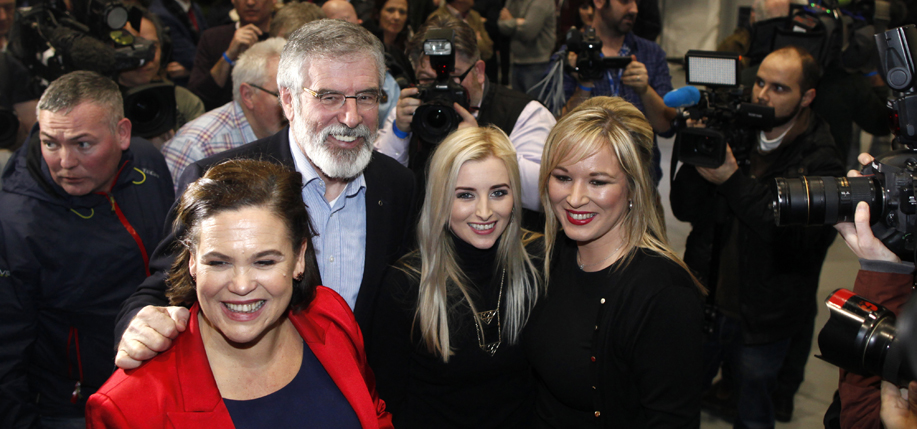For the first time in history of Northern Ireland there will be a nationalist majority in the national assembly at Stormont.
A short 10 months after the previous Northern Ireland Assembly election, the citizens went to the polls again in March. Sinn Féin, the second-largest party in the North had triggered the election in protest over a scandal involving Arlene Foster, the leader of the Democratic Unionist Party.
Dissatisfaction with the DUP’s position in favor of Brexit is also blamed for the decrease in unionist turnout. Meanwhile nationalists voted in greater numbers than in previous years.
Sinn Féin and the Social Democratic Labor Party, the smaller nationalist party, together now outnumber the DUP and Ulster Unionist Party, the smaller unionist party, in parliament.
Gerry Adams, Sinn Féin’s president, speaking to the Guardian about the election results said, “the notion of a perpetual unionist majority has been demolished” in Northern Ireland.
Foster will continue to serve as first minister despite her party losing 10 seats and the scandal, related to budgetary aspects of a renewable heat incentive she established as enterprise minister. With just 28 seats, the DUP is now two votes short of the number required to veto any legislative action, meaning that a gay marriage bill, which the DUP were against, is more likely to be passed.
“We need to learn the lesson and understand what people were saying in this election,” Jeffrey Donaldson, one of the leading members of the DUP, also told the Guardian. “We have been given the responsibility as the main party to take the lead at Stormont and that is what we intend to do.”
Co. Tyrone native Michelle O’Neill, who replaced the ailing Martin McGuinness as Sinn Fein’s leader in the North, will soon commence talks for the restoration of power-sharing. “The task is not easy, but it is achievable if people come at it with the right attitude,” she told the BBC.
The election saw 228 candidates competing for 90 seats in the Northern Ireland Assembly, cut from 108 after a 2016 cost-benefit reduction. Of the 18 fewer seats, unionists lost a combined 16, while Sinn Féin lost one, and the SDLP retained their 12. Many have posited that the unionist losses constituted a referendum on those parties’ support of Brexit, which Northern Ireland voted overwhelmingly against.
“With the political ground in flux, it is more important than ever that we seek stability and security in strong North/South institutions which can harmonize our efforts to minimize the impact of Brexit,” SDLP leader Colum Eastwood, who represents Foyle, County Derry, told Derry Now. “Northern Ireland must have a strong voice and a strong government to guide us through the turbulence that is about to come.” ♦
Northern Ireland Undergoes Historic Election Shift


Sometimes the SDLP seems to be more Loyalist that Nationalist. And many Dáil T.D.s appear to be equally supportive of Partition as the Unionists.